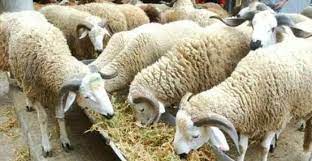While deeply rooted in Moroccan society, participation shows some interesting variations.
Despite a slight increase, over 87% of Moroccan households still perform the Eid al-Adha sacrifice. Urban households are less likely to participate compared to rural ones (14.3% vs. 8.7%). Participation drops significantly in single-person households (56.4%).
Conversely, larger families are more likely to perform the sacrifice (only 5.5% non-participation for families with 6+ members). Participation is inversely proportional to wealth and education level. Wealthier and more educated households are less likely to sacrifice.
Sheep are the overwhelming favorite (95.6%), followed by goats (4.3%) and rarely, cattle (0.1%). Goat sacrifice is more common in rural areas and poorer households.
The sacrifice represents a significant expense, consuming nearly 30% of the annual meat budget for most households. This burden is heavier for poorer families (41%).
The tradition of Eid al-Adha sacrifice remains strong in Morocco, but economic factors and lifestyle changes seem to be influencing participation, particularly in urban areas and smaller households. The survey also highlights the financial strain the sacrifice can place on some families.
MN/te/fss/abj/APA


